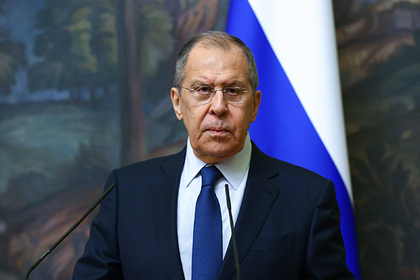Russian Foreign Minister Sergei Lavrov pointed out that the extended Treaty on Measures to Further Reduce and Limit Strategic Offensive Arms (START, unofficially known as START-3) is the backbone of strategic stability in relations between the United States and Russia. His statement is quoted in an interview with the Russian Thought magazine, published on the website of the Foreign Ministry.
He noted that the treaty can be considered such a “backbone”, since it defines the framework and reflects the correct balance of interests of the two countries. The diplomat stressed that the extension of the START Treaty is the result of joint Russian-American efforts, which were personally impressed by the presidents of Russia and the United States, Vladimir Putin and Joe Biden.
“As for further work with Washington in the field of arms control, it is too early to talk about any details. We conveyed to the Americans our vision of the parameters of the new “security equation” with the understanding that any negotiations can be fruitful only if the United States is ready to really take into account Russian interests, ensuring movement “in both directions” to achieve equal, mutually acceptable agreements. Russia is ready for this, ”the minister said.
On February 3, Moscow and Washington exchanged notes on the extension of the START Treaty, as announced by the Russian Foreign Ministry. The countries have officially extended the missile treaty for five years. Thus, it will operate in the form as it was signed until February 5, 2026.
The treaty stipulates that each of the parties should not have more than 700 deployed intercontinental ballistic missiles (ICBMs), submarine ballistic missiles (SLBMs) and strategic bombers. In total, they can carry no more than 1,550 warheads.
The total number of deployed and non-deployed launchers of ICBMs and SLBMs, as well as deployed and non-deployed bombers, shall not exceed 800.

